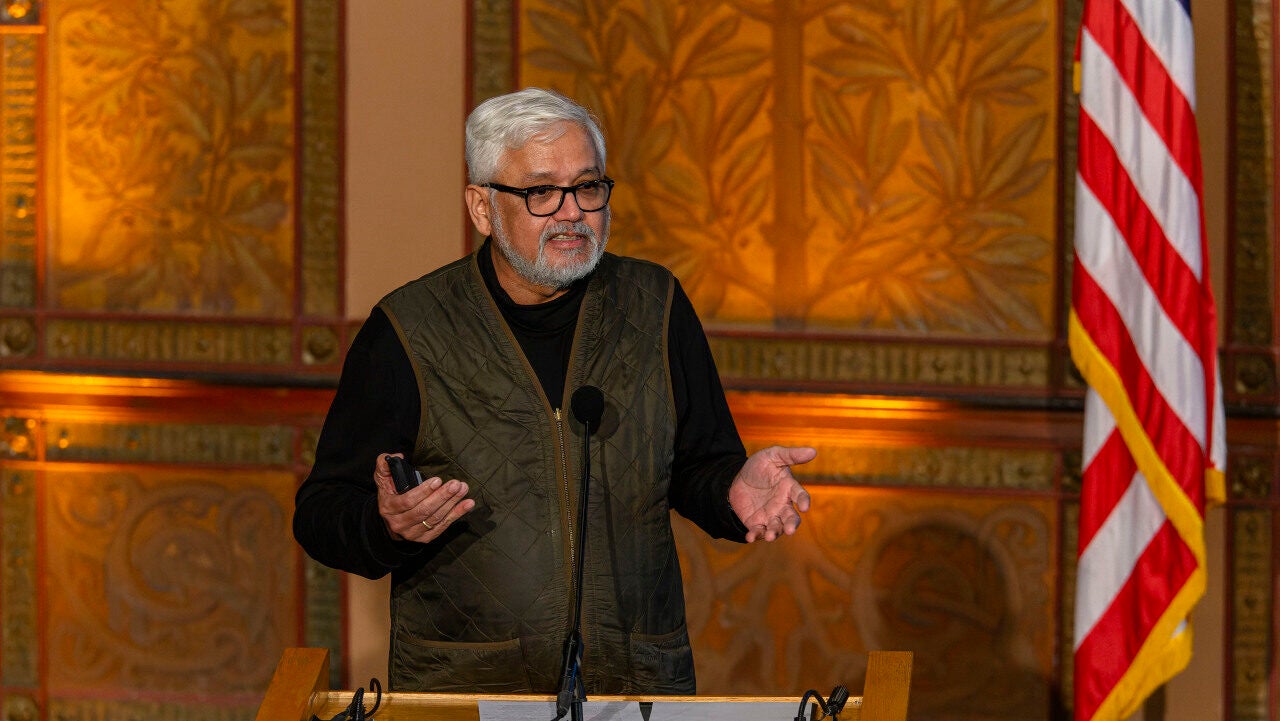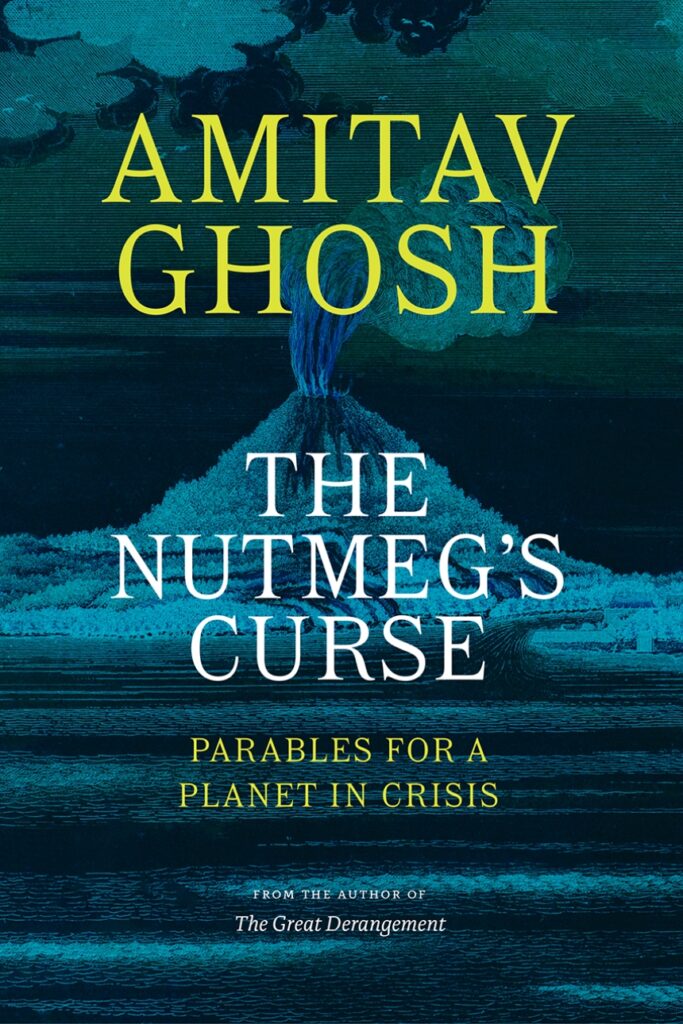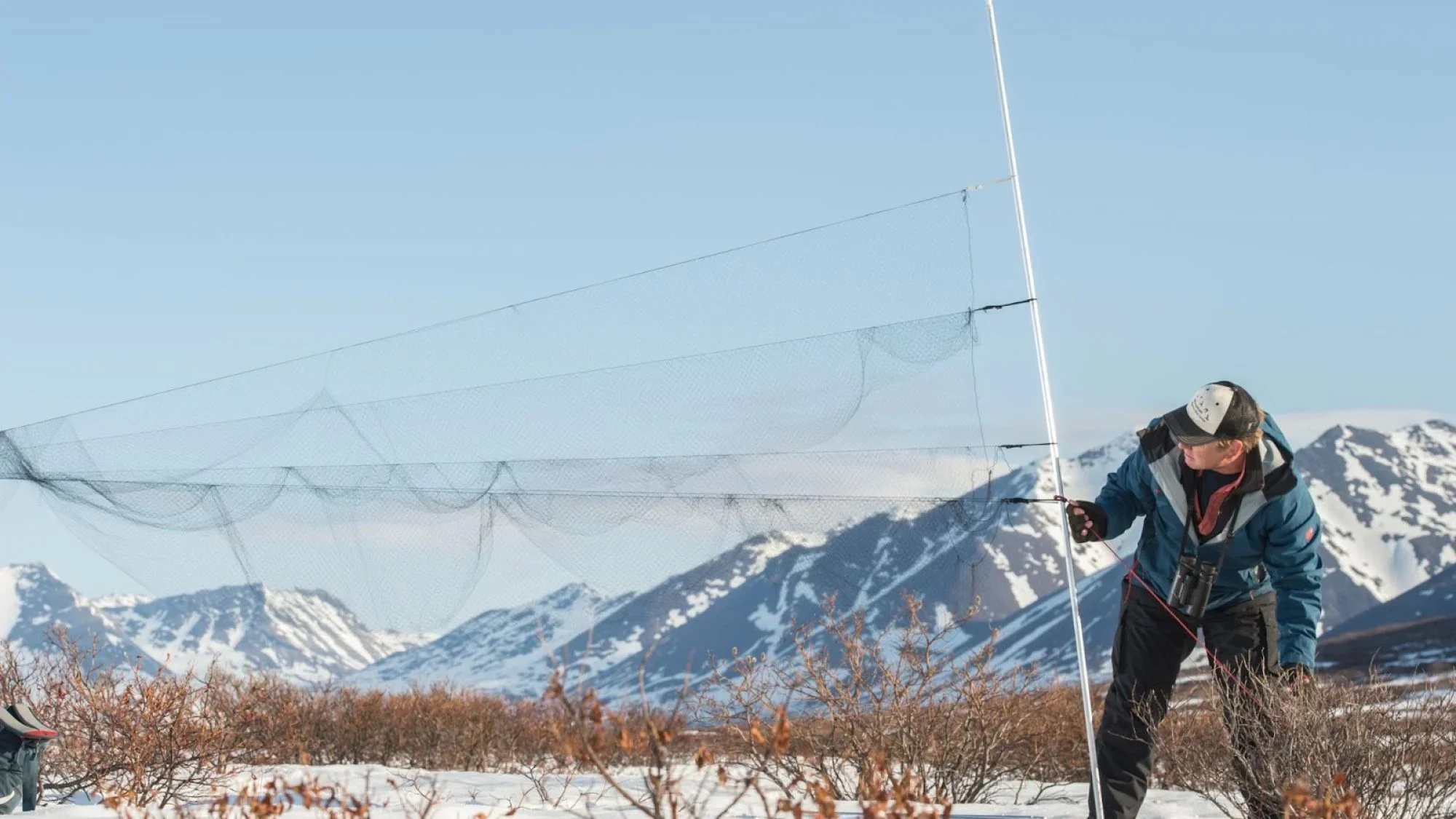Amitav Ghosh, the world-renowned and award-winning writer, spoke in Gaston Hall as part of the ongoing Voices on the Environment series.
Organized by The Earth Commons, the Georgetown Humanities Initiative, the Laboratory for Global Performance & Politics and others, each year the series brings together a slate of lectures, screenings and events that probe the “intersection of science, the humanities and the arts that link environmental journalism, literary writing, activist performance and critical approaches to climate change, the environment and language.”
Bringing Ghosh to the Hilltop was a cross-campus initiative that involved several schools, departments, institutes and programs. Nicoletta Pireddu, the Inaugural Director of the Georgetown Humanities Initiative, spoke to the gathered crowd.
“We could not have a more inspiring keynote speaker with us today than Amitav Ghosh to address the many facets of our planetary and environmental crisis,” said Pireddu. “In his fiction and nonfiction writings, his stories and imagination show us the interconnectedness of our past, present and future. They help us recover lost meanings that are vital to humanity. They allow us to see and foresee responsibilities, potentialities and risks. They teach us that life on our planet relies on the entanglement between the human and the nonhuman.”
Rosario Ceballo, Dean of the College of Arts & Sciences, introduced Ghosh to the assembled audience.
“Ghosh’s work spans many genres, with the inclusion of history, politics and science,” said Ceballo. “Events like these, much like Ghosh’s work itself, are testaments to the centrality and the power of the humanities. These are celebrations of imagination, of the way imagination opens us up to face enduring challenges and new solutions with empathy, with insight, history, narrative and journeys across time.”
The Nutmeg’s Curse
Ghosh, known for his groundbreaking novels and non-fiction works, blends stylistic and genre boundaries to explore the complex interplay between the climate crisis and the lasting legacy of colonialism. His most recent book, The Nutmeg’s Curse: Parables for a Planet in Crisis, traces 400 years of the production of nutmeg and mace, from the promise of prosperity to the mass murder and plunder of colonialism to the impacts of the climate crisis.
“The story of the Bandalese no longer seems so distant from our present predicament,” intoned Ghosh. “The continuities between the two are so pressing and so powerful that it could even be said that the fate of the Banda islands might be read as a template for the present.”
For Ghosh, the Banda Islands, a remote cluster of land in the Banda Sea, elucidate much of what is threatening the world. Rich soil, fertilized by volcanic ash, led to lush forests that provided the fertile breeding ground for the evolution of nutmeg and mace. The resulting centuries of bloodshed, strife and extraction are lessons that cannot be forgotten.
“Humanity is today even more dependent on botanical matter than it was,” said Ghosh. “The idea that modern man has freed himself from the planet is not just absurd – it’s a dangerous delusion.”
After the keynote lecture, Ghosh spoke with Rabih Alameddine, an acclaimed writer and painter, and Ashanee Kottage (SFS’22), a Post-Baccalaureate Fellow at the Earth Commons and the Laboratory for Global Performance and Politics. In the fall, Alameddine will begin his three-year appointment as the Lannan Foundation Visiting Chair.
Bringing Ghosh to campus was a collaborative effort between the aforementioned groups and the Graduate School of Arts & Sciences, the Walsh School of Foreign Service, the Lannan Center for Poetics and Social Practice, the Department of English, the Global and Comparative Literature Program, and the Office of Sustainability.
Related News
The UN Agreed to a Historic Treaty To Protect Marine Life. Now What?
After more than two decades of negotiations, United Nations member states agreed to a historic treaty in early March that protects marine life in the world’s oceans.
Read Full StoryA Bird Researcher and Business Alumna Find Hope in Environmental Solutions
Peter P. Marra is the founding director of The Earth Commons, a new institute at Georgetown that accelerates action, research and education on the most pressing environmental and sustainability challenges locally and globally.
Read Full “Spirit of Georgetown” StoryHot Off the Presses: How 3D Printing Could Help Construction Go Green
3D printing has the potential to upend the cement industry and, if used correctly, reduce the carbon footprint of the construction process, according to a new paper from Georgetown researchers.
Read Full 3D Printing Story



